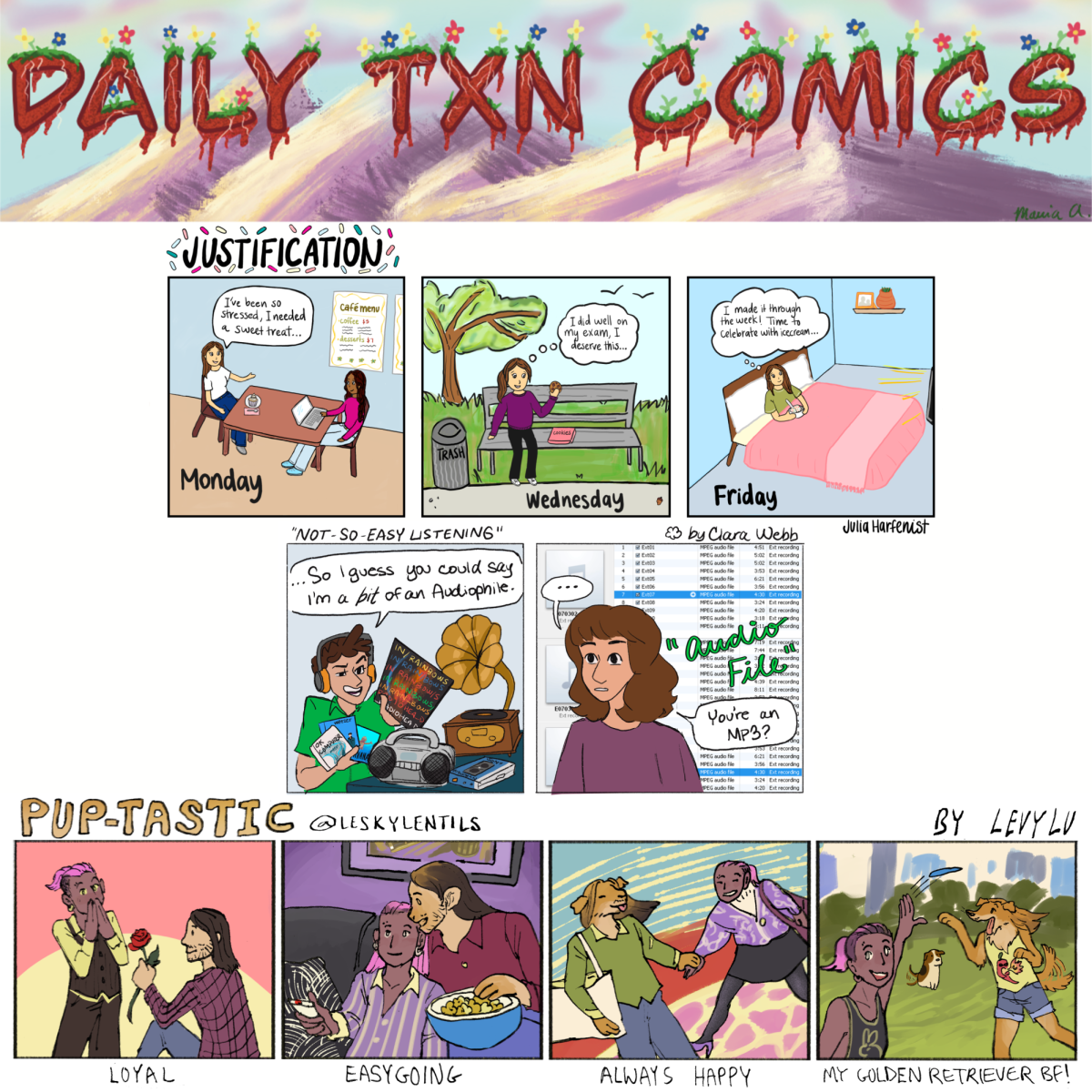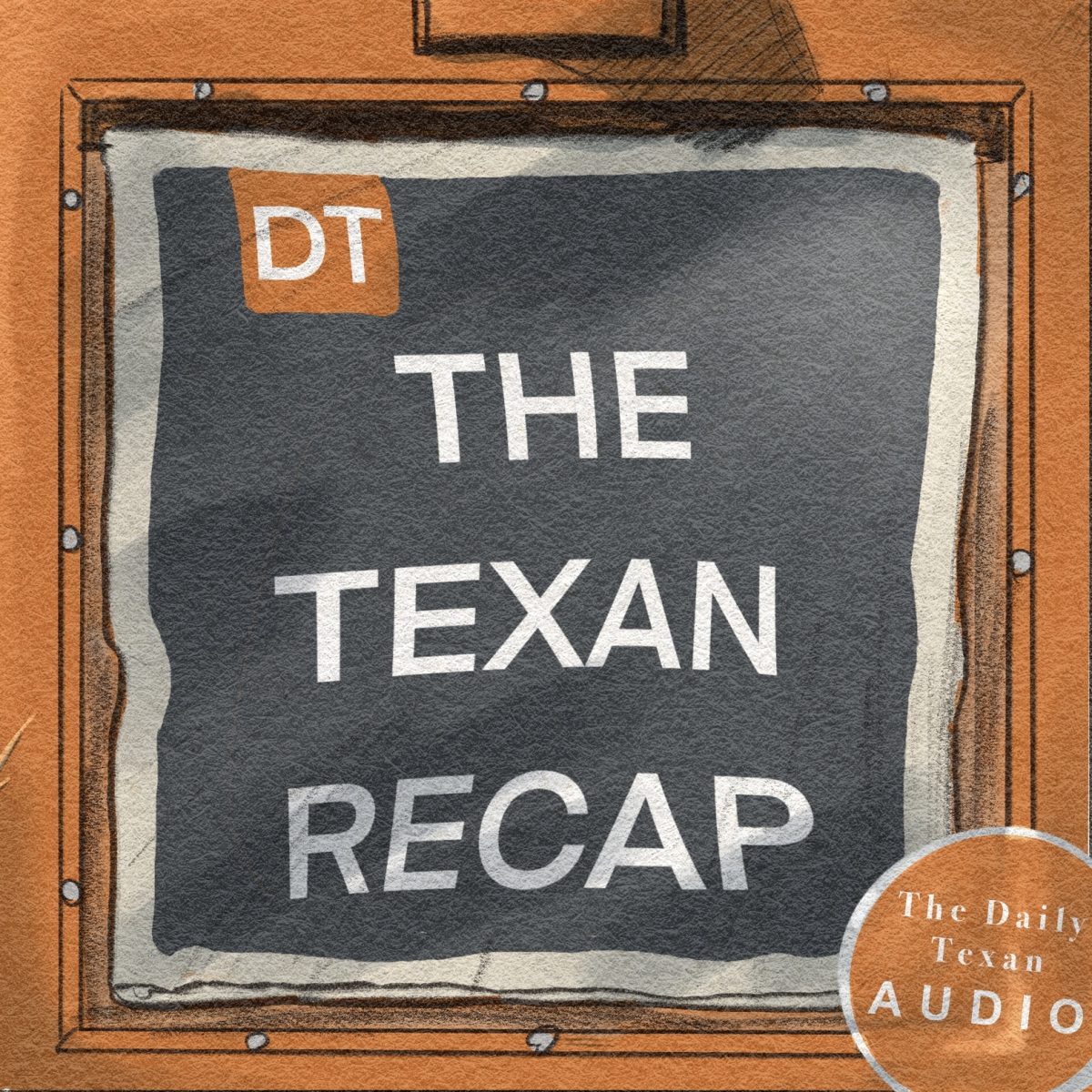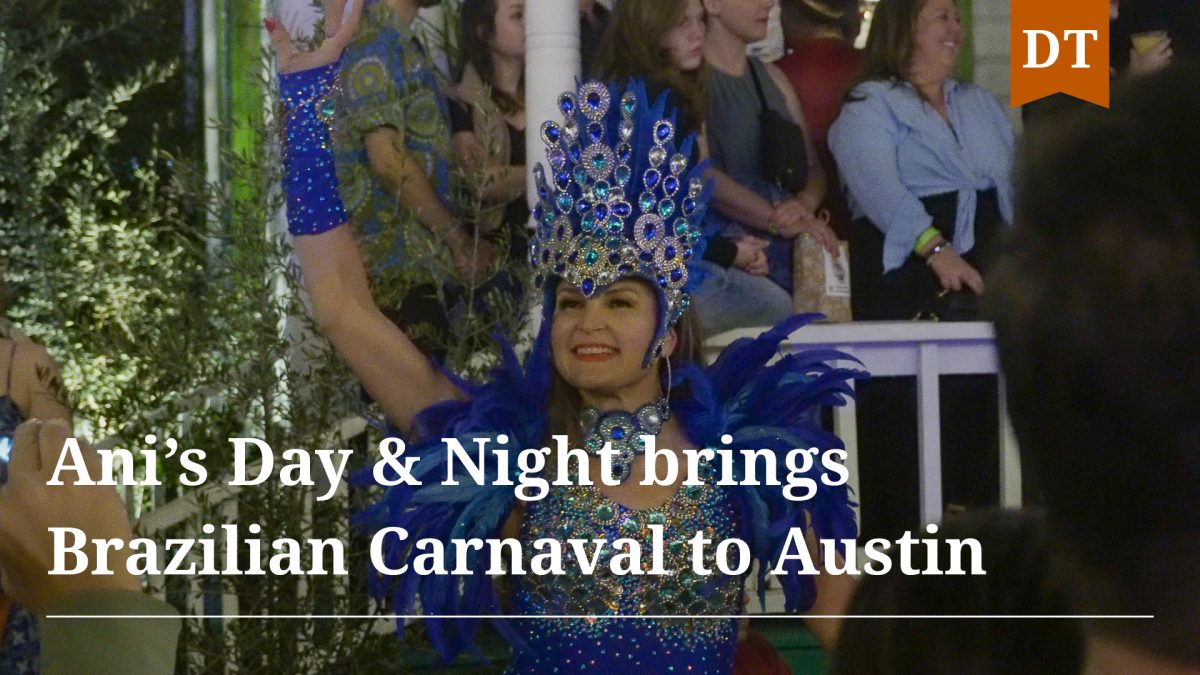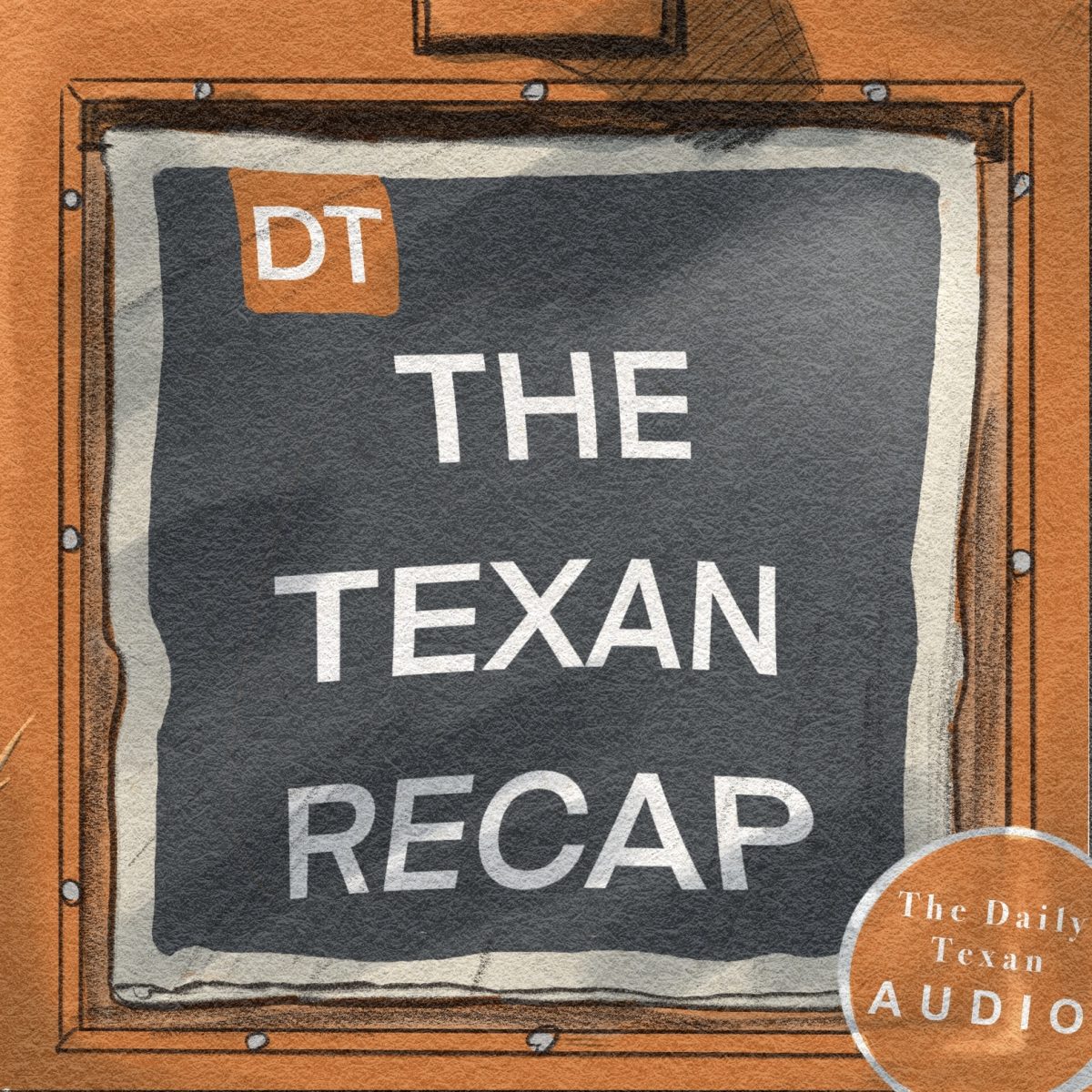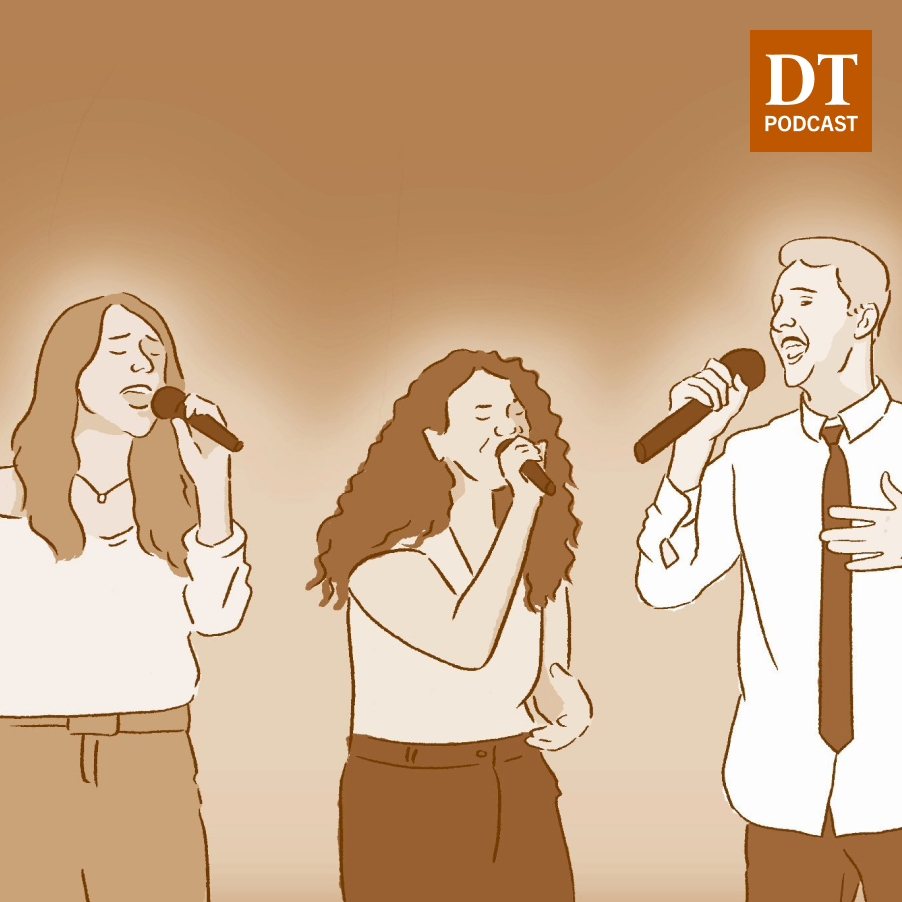Happy Halloween! Join Jake Gripp and Hannah Berns as they talk about other haunted locations in Austin and whether or not ghosts are real. This episode was edited by Hannah Berns. Music is by Jake Gripp and art is by Madison Tran.
Jake Gripp: I’m Jake Gripp an Audio reporter for the daily texan, in this episode of haunted house I am joined by another audio reporter Hannah Berns. Join us as we discuss what we’ve learned when exploring the history of Austin’s haunted houses.
Hannah Berns: Today we’re just going to be having a conversation about some of the haunted places and ghost stories that we’ve been to, heard about, seen, researched on the UT campus and in Austin because Austin is supposedly a very haunted place, and the UT campus is also supposedly a very haunted place.
So, Jake, if you want to start and talk a little bit about what you found about the Driskill Hotel.
Jake: It’s known to be one of the, most haunted hotels, period. It has a really long, long history as you heard in the podcast. There are two main ghosts. The first one is a little girl who haunts the stairs whose name is Samantha. And then the other common ghost would be this woman who found out on their honeymoon that she was being cheated on. She ended up taking her own life in her hotel room later that night.
Hannah: In my interviews with Jeanine Plumer and Monica Ballard from Austin Ghost Tours, it was interesting because they talked about these stories, this one especially, seemed to kind of just exaggerate the situation and present this image of this woman that really wasn’t necessarily true. So I’m just interested in your thoughts on, especially with this hotel, do you think that these kind of ghost stories are harmful?
Jake: Well, obviously, there’s always harmful aspects to it when you over exaggerate a person’s story after they’ve passed away. But, I will say my thinking is that they over exaggerated for advertising. They were originally as Scott said in my podcast, not allowed to talk about the ghost originally or how haunted it was, but when foreign investors bought it they said to quote, Scott, any advertising is good advertising. And I think they have sort of leaned into just being a haunted hotel. My thinking is that the more detail that they provide the story, the more people engage with the story and that sort of promotes the hotel in a sense.
Hannah: Yeah. And the more people that are engaging with the story, maybe the more people are actually finding out the truth about the story or all the information.
I, in my podcast I talked about the Littlefield House, which. Super famous, super well known as one of, the most haunted buildings in the state at least. There are a lot of ghost stories involving this house, especially with Alice Littlefield haunting the house. I think it just has this, like, mystery about it. I think there’s a lot of interesting aspects about the house, especially with, are these rumors harmful, are these ghost stories, you know, detrimental to the family, to students, to the staff.
Jake: The Littlefield House is interesting because I never understood it as haunted. I never understood the history behind it and I never really got too engaged with it. I was wondering what you thought about it being harmful.
Hannah: I think it’s interesting, I think that if we explore these rumors and these hauntings in a way that is recognizing the fact that they’re not really founded on real evidence. And that it’s more like a fun, haunted thing. I think that as long as you can kind of recognize that distinction and be respectful about all of it I think that’s a good way to go about it.
Jake: It’s worth noting that there is real history to these, , these are real stories, but they are stories. Some parts are part of a collective Austin memory and some parts just aren’t plain true.
Hannah: I’m curious if you have heard of any other haunted buildings on the UT campus or in Austin?
Jake: Not on the UT campus but in Austin, when I was talking to Jeanine Plummer, she came across this story It was interesting, because it was, undocumented Austin history. She talked about this building that was really haunted. It was called Moonshine Patio Bar and Grill. And it was along Waller Creek. the reason it was haunted is because this area experienced a flood in 1900. Austin Ghost Tours was investigating why this place was so haunted, and they realized that the reason they didn’t have any evidence was because all the structures were made of wood. There was only one building that remained, and it was Reisig building. The ghosts of the period have sort of congregated all in this one building. And that’s because it’s familiar to them and it houses the same energy and time that they existed in. That was something that was really interesting to me and just emphasized Austin’s history.
Hannah: Yeah, so something interesting that Jeanine and Monica talked about was the Scottish Rite Dormitory, which is a dormitory here on campus. I did see that ABC News report, detailing some student accounts from the Scottish Rite dorm just talking about the lights flickering, getting back to their dorm rooms, and finding things in different places. And there’s allegedly a ghost that haunts the dorm that belongs to a former resident who threw herself down one of the building’s elevator shafts when her boyfriend died in World War II. A lot of the employees say that the tale is pure fiction, but some of the residents do believe that the ghost still haunts the hall and some residents do still believe in this ghost.
The PMA building which I don’t know what…
Jake: That’s a physics, math, and astronomy, and that’s really interesting to me because when I see it, I see this like old industrial building, it just looks like a giant box just like going out into the air. What did you hear about it?
Hannah: I talked to a student who noticed when they were in the building there was a landing on an upper level where, in the stairwell, there was an entrance to a bathroom. The student noticed that that was just really interesting and just kind of gave an eerie sense and also mentioned that the escalators in the building apparently always breaking down, always making a lot of noise. Other students have described it as screaming. And so I think that you know, as the students said, they think that most really old buildings are haunted in some way, and this is an older building.
So, and then the last one I heard about was the Old Main Building. And in the early 1900s, many suspected that a ghost lived in the Old Main Building. Because a few evenings, there would always be the sound of this piano playing, like, really sad music.
Jake: And it was very, like, discordant, it was very it was heard, like, throughout the campus. And B Hall, which is where our residents stayed the male residents they could hear the piano. People kept on searching for the source of this. And every single time they went into the old main building, they would go immediately to the auditorium and try to find someone who was playing the piano. They could never do it.
Hannah: Yeah, I did read a news story where one night, eventually, someone actually phoned B hall, and they were taunting the person who answered the phone saying, you can’t catch me. Allegedly, the culprit was caught, and the piano player turned out to be someone who lived in B hall. Although his name was apparently lost to history, and he admitted it, it was a prank and said he would hide under a seat in the auditorium whenever someone tried to find him.
Jake: What was funny about the phone call is that when B Hall initially got it, they tried to keep the guy on the phone, let him talk himself out so they could capture the guy on the phone. In the phone booth at Old Main, and they successfully did that. And then they they took him back to B hall, made a little mock court to sort of sentence him. And they eventually, I believe it sentenced him to insanity.
Hannah: And you know, it just brings up an interesting point I wanted to talk about, which is And the involvement of students at UT in all of these haunted places, haunted rumors. I’m curious if you know of anybody or talk to anybody who likes to, engage in these haunted rumors or places.
Jake: I have a friend who lived in the Scottish Rite Dormitory last year. And on Halloween, she went to the basement of the building. And that’s where the old Masonic Lodge was. So they still have everything. There, as well, is what she said. She, she said that they had the old hats, which were like these really large hats, and they had all the books and stuff like that with all their rules and everything.
Hannah: And that’s kind of the extent that I have for student experience. I agree with you. I think there’s sort of a lack of knowledge on the history of these buildings.
So you did a lot more research on You know, the origins of ghosts and just everything surrounding ghosts. And I would love to hear more about that.
Jake: So what I got from my interviews is that ghosts are mainly just, they’re forms of energy that are sort of created by either like a focused tragedy, like the flood I was talking about earlier, or focused emotion. Because when something tragic happens and you are not done with your life you continue to live on. And just like a, an unfinished business sort of scenario. It’s interesting because they just don’t find peace. They also tend to Manipulate energy and how they do that is through electricity and water inside of a building because that is most plentiful and also familiar to them. And that’s why we see flickering of lights. That’s why we get faucets turning on and off. It’s to sort of get our attention towards them.
I also through my interviews found out that there were a few types of ghosts. There’s ones that interact with the living which is extremely rare. It doesn’t really happen a whole lot because that takes an extreme amount of energy to do. And there’s also ones who just replay the same scenes over and over.
Hannah: Yeah, I think the thing that struck me the most about what you’re saying is this idea of unfinished business and people not finding peace and that’s why they become ghosts. And I just think it’s interesting because, you could argue that no one is ready to die. And they always have something else that they wanted to do and they always have unfinished business. And so I wonder, what that criteria is, what makes something unfinished business, it just brings up that whole idea of, like right now, as a person, what is your unfinished business? And can there be ghosts out of people who, die at a very old age very peacefully of natural causes? Or is it really just these violent, sad, young deaths?
Jake: That’s great. All the stories that I gathered were very much just based off the idea of sudden deaths, violent or not violent. I feel like what I got out of it is that there are tons of interpretations and you don’t necessarily always understand a person’s business. You can’t always understand what someone wants to do with the rest of their life. And I just think it’s sort of up to the ghost to tell us what their, their business is. And I feel like that’s kind of what they do with their stories.
Hannah: I think you’re right, it’s very subjective. On a little bit of a different note I’m curious to hear, there’s all these movies out there, like you think that these movies show ghosts? Like, is that how ghosts actually show up in the real world? Is it a crazy exaggeration, or is there some truth to it?
Jake: I don’t think it is a crazy exaggeration. our media has influenced how we see ghosts like, we expect to see, actual, figures and everything like that. But, I think they obviously up it a whole lot. Because, I mean, you don’t want, like, a boring ghost in your movie. But I think real ghosts are much different than in the movies. I don’t think the movie depictions of ghosts are really accurate, at least from the movies that I’ve seen. I think that these ghosts are still trying to tell their story and I think that media tries to play that up. But for real life ghosts, it’s just continuing to tell their story. You know, there are some, staunchly non believers of ghosts.
Jake: I mean, some people think that this is, this is the life, like this is it. There’s nothing beyond this. So I, I understand that part. But at the same time, there are people that say it doesn’t go with science, and I mean, I understand that, but at the same time energy cannot be created or destroyed, and I feel like, in a sense, when people die, their energy has to go somewhere. What I again when I talked to Scott and I asked him Why do people tell these stories? It’s because they sort of get a break from everyday life. They get an understanding that There is something else besides just this And that gives them a little bit of a thrill, and it entertains them, and some people just take apart that entertainment and that thrill and they see it as just, oh, it’s your mind tricking you into something. Which it very much could be, I’m not against that idea, but at the same time, it’s just. It’s just, yeah, what do you think about that? That was a really good question.
Hannah: I think that that whole idea of using these stories as an escape, I think it really just is another form of hope. I think it’s another form of maybe there’s something out there. Like, maybe my life doesn’t fully end or there’s something beyond what I’m living right now. I think it’s It’s just another form of, you could argue, like spirituality or religion. I think that it’s just another way that you know, it’s hopeful and I think that humans, because there’s just this reality and this life and this world that we’re confined to, we really know so little that, it’s helpful to have these kind of things that you follow by to think that there might be something else out there. And then, the second thing is I’ve heard the scientific argument a lot too but my main argument to that is everything that we know about science now We didn’t know once and we had to prove and we had to find out so who’s to say that there is real scientific evidence of ghosts and of energy and spirits out there We just don’t know we haven’t proved it yet, I think that that’s where the hope comes in, too, is that we don’t know everything. We actually barely know anything. And so to say that, it’s a hundred percent not real, I think it’s just limiting yourself from, believing more and expanding more.
Jake: Exactly. It’s the whole thing of the possibility of the unknown.
Hannah: Do you believe in ghosts, Jake?
Jake: Do I believe in ghosts? Yes. After what I heard through my interviews, I do more than I did. I always liked the idea of believing in ghosts and stuff like that, but now I do believe in them more. I’m more focused on sort of the energy that the stories of them generate. And if you listen to my podcast, the big ending moment was we continue to tell these stories of people to help them continue on living. And I think that’s just absolutely amazing that we get to do that through the art of storytelling. they don’t exist physically, they exist in our minds more than they ever did. And through telling their story, we continue to let them live. And like I said, I think that’s awesome.
Thank you for listening. This has been a production of The Daily Texan Audio Department. Editing and reporting for this episode done by Hannah Berns and Jake Gripp, music done by Jake Gripp.


